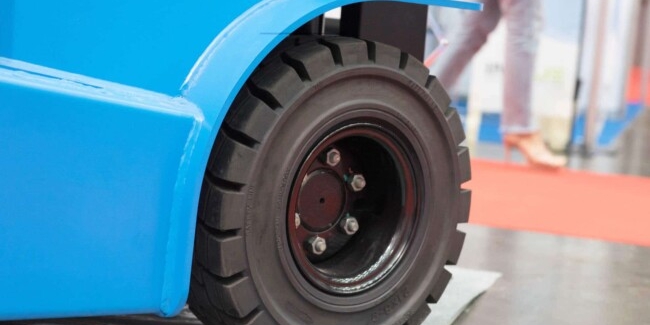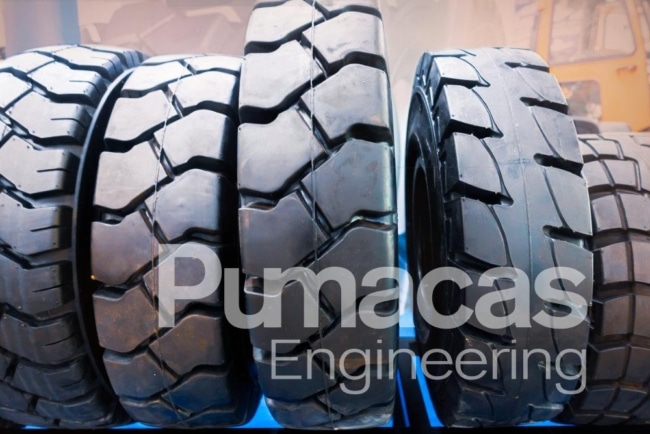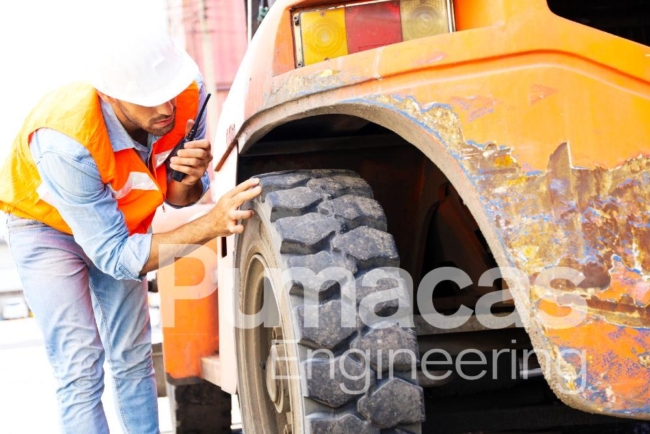News / Blog
What to do if you need a
Specialist Forklift Wheel

Forklifts are vital material-handling equipment in various industrial applications, from bustling dockyards to fast-paced construction sites and warehouses. One critical factor stands out despite the varied applications: proper forklift maintenance is crucial to sustaining efficiency and productivity in the work environment.
How to choose the right Specialist Forklift Wheel
Forklift wheels are among the most often replaced parts on a forklift. Repetitive wheel replacement can result in high operational costs and expensive downtimes. Taking time to find the right forklift wheels can halt the unnecessary turnover while protecting your machinery and the operators.
Here are three tips to guide you in finding the right replacement wheels for your operations.
1. Consider your Forklift's Operational Envrionment
The first step would be to carry out an audit of your forklift wheel needs. You may have to factor in the application and surface on which your wheels will be running on.
Indoor applications such as smooth warehouse floors may favour the use of cushion tyres over pneumatic ones. Pneumatic wheels provide better ground clearance and may be better suited for rougher, outdoor applications.
Temperature can have a massive impact on the service life of your new tyres. The heat generated during extended operations can damage the integrity of the wheel. Fibreglass wheels are popular for such applications due to their heat-resistant properties.
Cold temperatures can result in ice build-up, which causes slippage. Cold-prepped tyres are necessary for cold environment applications. Forklifts that carry highly combustible or explosive fumes may need static-resistance wheels.
Polyurethane wheels are sturdy and chemical-resistant, making them a popular option for environments that experience frequent chemical spills. The tyres are also excellent for transporting heavy loads.


2. Understand the Types of Tyre for Forlift Wheels
Your workplace environment may also dictate the construction design of the forklift wheels to use. The primary wheel types are:
- Pneumatic
- Solid rubber
Pneumatic wheels operate similarly to those found in cars. The air-filled wheels can have a radial or bias design structure. Radial pneumatic tyres provide better rolling resistance, heat dissipation, and tyre footprint. Bias wheels have stiff sidewalls that resist cracking and chunking.
Solid rubber wheels do not have any air. Manufacturers bond multiple layers of rubber to a metallic centre. The tyres may not handle too much work and have a less turning radius than pneumatic tyres.
You may need to consult a forklift wheel manufacturer to learn how the wheel construction can affect your machinery’s performance as well as wear and tear.
3. Consult a Forklift Wheel Specialist
Forklift tyre replacement is one of the highest maintenance expenses for most fleet operators. The easiest way to save your company’s bottom line may be to consult a tyre expert.
A wheel repair specialist can organise a site visit to audit your current wheel needs. The assessment may include the manufacturer’s specifications, the operational environment, shift lengths, forklifts’ capacity, and other factors.
You may also learn about the number of wheels to order and the minimum order requirements.

Final Thoughts
The life of your forklift tyres can affect your company’s maintenance expenses as well as the safety of your workers. You may need to take time and research the correct wheel replacements for your machinery, which may even be a bespoke forklift wheel or tyre. When in doubt, always consult an expert.
That being said, how could a specialist or bespoke service help your workflow? Click here to read more about specialist solutions and small-batch orders and find out which suits you.
Complete industrial wheel solutions - all in one place
For more information, get in touch today on 0121 448 4900. Alternatively, to request a call-back - fill out the contact form below.